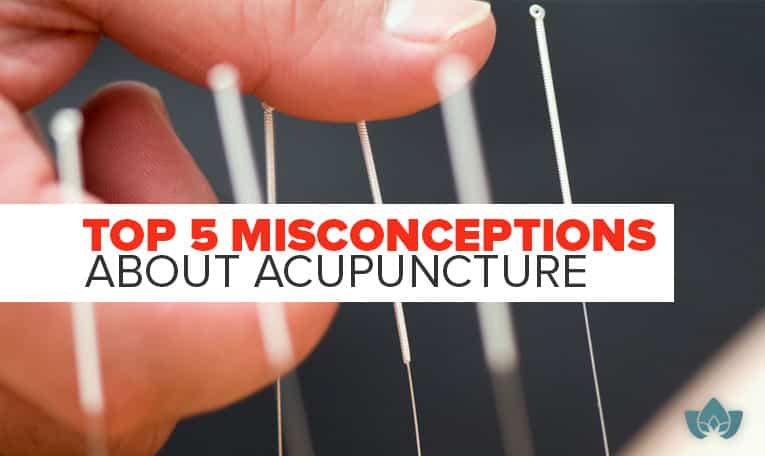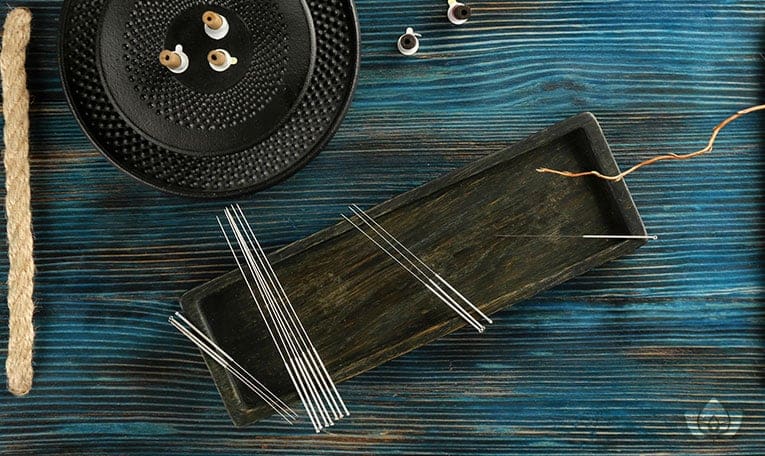Top 5 Misconceptions About Acupuncture
Posted on March 5th, 2018

Acupuncture today is one of the most well-known forms of complementary healthcare.
Even those who haven’t experienced a treatment themselves have at least heard about it.
But awareness is only the first step.
As a streetsville naturopathic doctor who practices acupuncture, I’ve seen my share of misconceptions about acupuncture treatment.
These misconceptions are understandable to someone who’s never experienced acupuncture before or who has been fed only misinformation about it.
With this article, I hope to dispel some of the myths surrounding acupuncture.
If you’re interested in finding out more about how acupuncture may be able to help you with your health concerns, contact us at the Mindful Healing Clinic.
1. Acupuncture isn’t real medicine
Acupuncture began as a form of folk medicine in China, and as a result some believe it’s based more around superstition than actual science, or that it is no more effective than a placebo.
However, there’s a large body of work that does support many of the claims made about acupuncture and its practice.
A search on the US National Library of Medicine, a database of scientific studies published in peer-reviewed journals, delivers more than 1200 results for the search term “benefits of acupuncture”.
The research points to acupuncture’s benefits, or potential benefits, in treating children with asthma, helping people recover from gynaecological surgery or certain types of strokes, to help ease the pain of patients in palliative care, treating fibromyalgia, diabetic gastroparesis, and more.
While the jury is still out on some of the benefits of acupuncture, it’s clear based on the scientific literature that there’s more to it than just superstition.
2. Acupuncture is painful
You can be forgiven for thinking that acupuncture is painful.
After all, we’re stabbing you with a bunch of needles all over your body, right?
Wrong.
First of all, acupuncture needles are very small and fine – just a little bit thicker than a strand of hair, actually.
And they aren’t inserted all the way into your body either, just enough to hold them in place.
Some people report mild discomfort, like a dull ache, around the point of insertion, which generally either fades on its own or eases as your acupuncturist manipulates and adjusts the needles.
In rare cases, acupuncture has some side effects, including fatigue, soreness, and lightheadedness.
These side effects are rare, and almost always clear up in a day or two.
But in general, acupuncture is not considered a painful form of treatment.
3. Acupuncture is just a band-aid treatment
Because of acupuncture’s reputation as a treatment to help relieve pain, it’s a common belief that acupuncture simply deals with the symptoms of an illness, rather than treating the root cause.
The truth is that acupuncture is designed to help facilitate the body’s own ability to heal itself.
The acupuncture needles stimulate the body to release endorphins.
While endorphins do act like a natural painkiller, they have also been proven to bolster your immune system, improve your digestive function, and help fight several illnesses.
When the body’s ability to heal itself is promoted, it may make certain conditions easier to manage overall.
So acupuncture is designed to help you deal with your health concerns permanently.
4. Once you receive acupuncture, you’ll always need to get it
Like any type of healthcare treatment, the number of acupuncture treatments you need depend dramatically on your own health history, your unique health concerns, the severity of your condition, and much more.
While some patients report relief after the first session, others require more treatments in order to get the results they were hoping for.
However, if you don’t see the results you were hoping for with your first treatment, don’t give up.
Your acupuncture practitioner will help you make an informed decision about the effectiveness of your treatment plan.

5. Acupuncture can’t be used in combination with other treatments
Acupuncture is considered to be a safe, low-risk treatment.
In general, there is no conflict between acupuncture and other forms of health care treatment, and can be used in conjunction with many other treatments, including chiropractic, massage therapy, naturopathy, and alongside most pharmaceutical drugs.
If you are undergoing other health care treatments, though, speak to your acupuncture practitioner.
They will be able to help you make an informed decision as to whether acupuncture is right for you.
Contact The Mindful Healing Clinic
Are you interested in discovering more about acupuncture?
Curious as to whether it’s right for you? If so, contact me, Dr. Maria Cavallazzi, at the Mindful Healing Clinic in Streetsville, Mississauga.
You can book a FREE 15 minute optimal health consultation, during which I’ll sit down with you, listen to your concerns, answer any questions you may have, and from there we can put together a treatment plan to address your health concerns.
Call the Mindful Healing Clinic to book your FREE 15 minute optimal health consultation today.
Until next time,
Dr. Maria Cavallazzi, N.D
Mindful Healing Integrative Naturopathy
251 Queen St S Unit 4,
Mississauga, ON L5M 1L7
- https://goo.gl/maps/KYspifT7J232
Dr. Maria Cavallazzi is a medical doctor from Colombia where she practiced as a family physician for 8 years until she moved to Canada 16 years ago.
To read more info about health, wellness, and alternative medicine, please visit us here: downtown Mississauga naturopathic clinic
